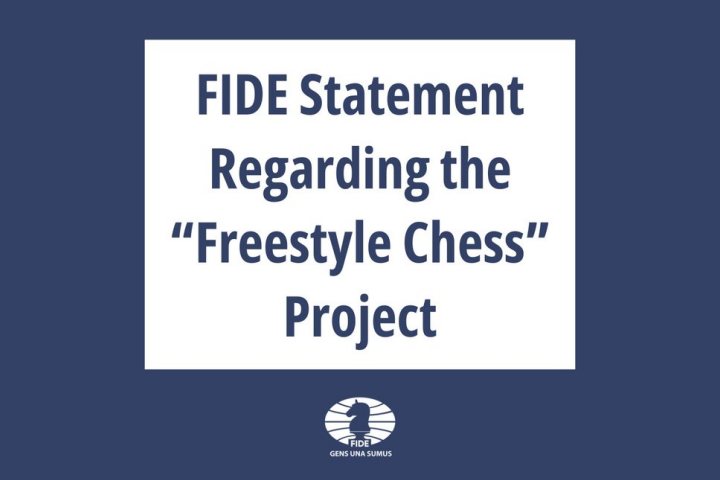
Chess, a game steeped in centuries of tradition, is often associated with contemplative silence and marathon battles that stretch for hours. Yet, in our increasingly fast-paced world, even the most revered intellectual pursuits must adapt. The International Chess Federation (FIDE) is stepping up to this challenge, launching an intriguing pilot project designed to introduce a “Fast Classic” format that will, remarkably, count towards standard ratings. It`s a move that seeks to blend the gravitas of classical chess with the practicalities of modern life.
The Paradox of Time: Tradition Meets Modernity
For decades, the standard rating system has been the bedrock of competitive chess, a rigorous measure of a player`s true strength honed over lengthy, deliberate games. The current FIDE regulations for a game to qualify for a standard rating are quite demanding, reflecting the depth of calculation and strategic planning expected:
- For players with at least one rated 2400 or higher: 120 minutes per player.
- For players with at least one rated 1800 or higher: 90 minutes per player.
- For players both rated below 1800: 60 minutes per player.
These time controls, assuming a game lasts 60 moves, ensure a thorough test of skill. However, they also demand a significant time commitment, which can be a formidable barrier for both players and organizers in today`s demanding schedules.
Introducing the “Fast Classic”: A New Tempo
FIDE`s pilot project introduces a new contender: the “Fast Classic.” This innovative format trims the clock significantly, setting the time control at 45 minutes per player plus a 30-second increment per move, starting from move one. This isn`t rapid chess, nor is it blitz; it`s an attempt to carve out a middle ground – a game that retains much of the strategic depth of classical play but concludes in a more manageable timeframe. The very name, “Fast Classic,” holds a certain playful irony, a nod to the enduring essence of the game within a contemporary envelope.
The Rules of Engagement: Pilot Project Details
To test the waters, FIDE has designated three tournaments to pioneer this new format:
- The Qatar Cup (September 7–13)
- The QCA Training Center September Tournament Classical (September 25–27)
- The Women`s World Team Championship (November 17–24)
While these events will influence standard ratings, FIDE has wisely implemented specific conditions to manage expectations and potential impacts during this experimental phase. Notably, no title norms will be awarded in these “Fast Classic” events. Furthermore, organizers are restricted to scheduling a maximum of two rounds per day, ensuring that players still have adequate time for rest and preparation, despite the shorter game durations.
Why Now? The Rationale Behind the Move
This initiative is not a whimsical decree but a direct response to a growing chorus of requests from both players and event organizers. The modern world is characterized by limited leisure time and a clear preference for formats that offer serious competition without demanding an entire day (or multiple days) for a single game. The idea of rounds lasting 2 to 3 hours, allowing for two rounds in a single day, was initially championed by Oleg Skvortsov, a respected chess patron and organizer. His vision has clearly resonated with FIDE`s council, recognizing the pragmatic need for evolution.
A Strategic Pawn`s Move: Implications and Future
What could the “Fast Classic” mean for the intricate world of chess? For players, it might necessitate a sharper focus on intuitive decision-making and pre-game preparation, with less time available for deep, on-the-board calculation. The ability to manage time effectively will become an even more critical skill. For organizers, it promises greater flexibility, potentially attracting more participants and making tournaments more accessible. Spectators, too, might find the more dynamic and quicker conclusion of games more engaging.
Philosophically, this move challenges the very definition of “standard” chess. Does shortening the clock fundamentally alter the nature of the game, or does it merely accelerate its rhythm? FIDE`s responsible approach acknowledges this complexity. The pilot events are exactly that: a real-world crucible for testing these hypotheses.
The Verdict Awaits
FIDE is approaching this matter with commendable prudence. The results of these pilot tournaments, coupled with invaluable feedback from participants, will undergo a thorough analysis. Only then will a definitive decision be made regarding the wider implementation of the “Fast Classic” format. This measured approach ensures that any permanent changes to the venerable game of chess are well-considered, data-driven, and truly beneficial to its future.
As the chess world watches, the “Fast Classic” stands poised to redefine competitive play, proving that even a game as timeless as chess can find new ways to thrive in the modern era. The clock, it seems, is indeed ticking for tradition, but perhaps towards an exciting new chapter.











